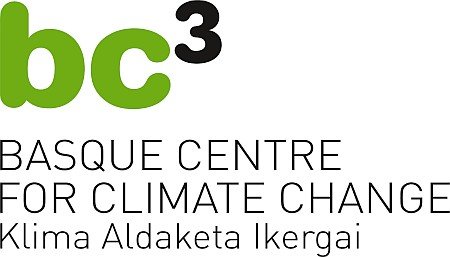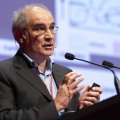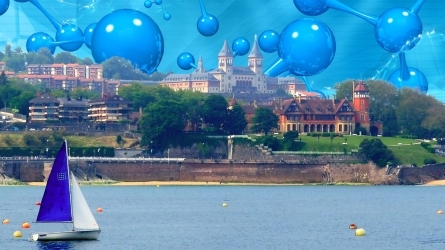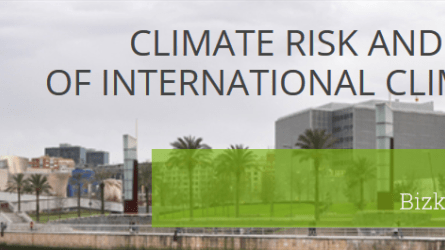
Climate Risk and the future of International Climate Policy
Description
As in its previous editions, the structure of this year’s Summer School will approximately follow that of the General Meetings of IPCC (Intergovernmental Panel for Climate Change): three sessions focusing on broad themes roughly related to those of the three IPCC Working Groups. Accordingly, this year’s session themes are (1) climate science, (2) climate change impacts and adaptation, and (3) the role of energy in the mitigation of climate change.
In last year’s edition, the Summer School focused on the factors behind the paradigm shift in international policymaking, which eventually lead to the Paris Agreement. Since then, however, many things have happened. The Paris Agreement entered into force on 04 November 2016, but the US government has already announced its intention to back out of the agreement. What role other countries may play under these circumstances (also leaving the agreement or instead increasing ambition of contributions)? Their reactions will determine the future of the UN Climate process. Meanwhile, time is running out to tackle climate change, with rising global temperatures, ocean acidification, sea-level rise, melting of Arctic sea ice, recurrent extreme events, etc., all causing visible impacts on sensitive issues like water and food security, health, migration, mitigation options, climate policies and the energetic transition to a low-carbon future. The speakers of the Summer School 2018 will try to cover these and other related key issues in climate change, and assess their impacts and consequences on regional and global levels.
The school is open to PhD Students, postdoctoral fellows and other researchers, as well as stakeholders and policymakers interested in acquiring a deep understanding of climate change and the policies designed to cope with it.
Remark:
The summer school will encourage the interaction between students, lecturers and the two institutions organizing the school. As in previous years, this edition will also feature an interactive climate-summit game for the students (day 2).
Objectifs
The general objective of the BC3-UPV/EHU Summer Schools on Climate Change is to deliver every year a multidisciplinary, up-to-date view of the latest trends in climate change research. This ninth edition of the Summer School follows the same multidisciplinary approach, and gives special emphasis on the tendencies in international climate policy three years after the Paris Agreement.
Collaborateurs
Programme
04 07 2018
CURRENT CHALLENGES IN CLIMATE SCIENCE
Chair: Marc Neumann (BC3)
“Opening Ceremony“
- María José Sanz Sanchez | Basque Centre for Climate Change (BC3)
“The Anthropocene“
- Alejandro Cearreta | UPV/EHU
“Climate change effects on marine ecosystems“
- Katja Philippart | Royal Netherlands Institute for Sea Research (NIOZ)
Pause
“Climate change in mountain areas“
- Juan Ignacio López Moreno | Instituto Pirenaico de Ecología (PIE)
Table ronde: “Climate Science“
- Sergio Henrique Faria | Basque Centre for Climate Change (BC3)
05 07 2018
CURRENT CHALLENGES IN IMPACTS AND ADAPTATION TO CLIMATE CHANGE
Chair: Elisa Sainz de Murieta (BC3)
“Assessing the protection services of coastal ecosystems: Implications for adaptation and decision making“
- Iñigo Losada | Instituto de Hidraúlica Ambiental (IH Cantabria)
“Water security and climate change“
- Declan Conway | Grantham Research Institute on Climate Change and the Environment, London School of Economics
Pause
“National governance on climate change“
- Alina Averchenkova | Grantham Research Institute on Climate Change and the Environment, London School of Economics
Table ronde: “Impacts and Adaptation“
- Ibon Galarraga Gallastegui | Basque Centre for Climate Change (BC3)
UNITED NATIONS SUMMIT GAME (Moderators: Marta Escapa (UPV/EHU), Elisa Sainz de Murieta (BC3), Ambika Markanday (BC3))
SOCIAL EVENT: Cycling tour and "pintxos" night in Bilbao
06 07 2018
THE ROLE OF ENERGY IN THE MITIGATION OF CLIMATE CHANGE
Chair: Mikel González-Eguino (BC3)
“Energy for a low-carbon society“
- Fernando Lasheras García | Iberdrola
“The design of support schemes for renewables“
- Natalia Fabra | Universidad Carlos III (Madrid)
Pause
“Carbon policy and the structure of global trade“
- Christoph Böhringer | University of Oldenburg
Table ronde: “Mitigation and Energy“
- Alberto Ansuategi Cobo
Closing: Mª José Sanz (BC3), Marta Escapa (UPV/EHU), Sérgio Henrique Faria (BC3), Ibon Galarraga (BC3)
Directeurs
S.H. Faria (Dr.rer.nat. Darmstadt University of Technology, Germany, 2003) is Ikerbasque Research Professor at BC3 and Adjoint Presidential Professor at the Nagaoka University of Technology (NUT), Japan. He is Head of the BC3 Research Line “Climate Basis”, Director of the “IzotzaLab” (BC3’s low-temperature research facility), and leader of the Team “Climate Change, Environment and Human Well-Being” within the UPV/EHU Doctorate Programme “Quaternary: Environmental Change and Human Ecological Footprint”. He is also European Coordinator of the “GIGAKU Education Programme for Innovative Global Engineers”, which is part of the “Top Global University Project” of the Japanese Government. He is Associate Editor-in-Chief of Journal of Glaciology and Editorial Board Member of Scientific Reports. He is also Lead Author of “Chapter 1: Framing, Context, Methods” of the 6th Assessment Report, Working Group 1 (AR6-WG1) of the Intergovernmental Panel on Climate Change (IPCC).
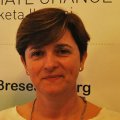
Marta Escapa Garcia
Associate Professor of Economics, UPV/EHU
Marta Escapa (Ph.D. in Economics, 1996, UPV/EHU) is Associate Professor at the University of the Basque Country (UPV/EHU). Her research and teaching activity has developed in the area of Economic Analysis and, specifically, in Environmental and Resource Economics. She has over 20 years of research and teaching experience that covers both undergraduate and graduate courses on Natural Resource Economics and Environmental Economics and her research has focused on issues like: International Environmental Agreements on Climate Change; Intergenerational Dimension of Climate Change, Economic Analysis of Fisheries Management; Environmental Fiscal Reform and Unemployment; Solid Waste Management using System Dynamics. The main results from this research have been published in peer review journals with impact factor (JCR) like: Journal of Environmental Economics and Management, Environmental and Resource Economics, Energy Economics or Ecological Economics.
Conférenciers
Alberto Ansuategi is Doctor of Philosophy (PhD) in Environmental Economics from the University of York (Department of Environmental Economics and Environmental Management). Currently he is a member of the Institute of Public Economics and Associate Professor in the Department of Economic Analysis I, UPV / EHU and Director of the Low Carbon Programme, joint research initiative between the UPV / EHU and the Basque Centre for Climate Change (BC3) and sponsored by the Repsol Foundation. His main research and publications in international journals include contributions to the analysis of the relationship between economic growth and environmental quality, management of fisheries resources and the use of economic instruments to promote energy efficiency and tackling climate change. As for his participation in research projects and networks at European level on issues related to marine economy it should highlighted his participation in the ELME project between 2012 and 2014.
Dr. Alina Averchenkova is a Distinguished Policy Fellow at the Grantham Research Institute on Climate Change and the Environment at the London School of Economics and a visiting Senior Fellow at the Royal Elcano Institute. With extensive experience on climate change and international development, Alina’s current work focuses on climate change governance and legislation around the world and capacity building and advisory to governments, parliaments, and international organisations on these issues. She is a founding member of the Knowledge Network on Climate Assemblies (KNOCA). Her experience includes international consultancy KPMG, the United Nations Framework Convention on Climate Change, a carbon asset manager First Climate and the Environmental Defence Fund. Alina holds a PhD in Economics and International Development from the University of Bath.
Since May 1st, 2012, Prof. Dr. Christoph Böhringer has been a member of the Commission of Experts for Research and Innovation that was established by the German government. Christoph Böhringer is professor for economic policy at the Carl von Ossietzky University in Oldenburg. After his graduation as industrial engineer from the Technical University of Karlsruhe, he received a doctorate in economics at the University of Stuttgart in 1995, where he became head of the section „Energy Economics“ at the Institute for Energy Economics and the Rational Use of Energy (IER). From 1999 to 2006, he led the department „Environmental and Resource Economics, Environmental Management” at the Centre for European Economic Research (ZEW) in Mannheim. In 2002, he habilitated in economics at the University of Regensburg and in 2004 he became professor of economics at the University of Heidelberg.
Catedrático de Paleontología en la Universidad del País Vasco UPV/EHU, Doctor en Geología por la University of Exeter (UK), Director del Departamento de Geología (UPV/EHU), Investigador Principal del grupo Harea-Geología Litoral de la UPV/EHU (IT1616-22), Responsable del Programa de Doctorado en Cuaternario: Cambios Ambientales y Huella Humana (UPV/EHU), Miembro del Anthropocene Working Group (Comisión Internacional de Estratigrafía), Investigador Asociado del Basque Centre for Climate Change (BC3) y Responsable del Laboratorio Joaquín Gómez de Llarena de la Sociedad de Ciencias Aranzadi. Autor de numerosas publicaciones científicas y divulgativas sobre la evolución de las zonas costeras durante el Holoceno y el Antropoceno como consecuencia de los cambios en el nivel marino y el impacto humano.

Declan Conway
Declan’s research cuts across water, climate and society, with a strong focus on adaptation and international development. Originally a geographer, Declan draws on insights from different disciplines to pursue problem-focused research. He has over 20 years experience working in sub-Saharan Africa and Asia (particularly China). Declan’s research funding has included the EU, UK, USA, and the World Bank. He is chair of the Programme Executive Board of "UPGro: Unlocking the Potential for Groundwater in sub-Saharan Africa"; member of the international editorial board of "Global Environmental Change"; leader of the "Sustainable Development Theme in GRI", project leader of "UMFULA: Uncertainty reduction in Models For Understanding deveLopment Applications" and "The economic impact of El Niño related floods and drought on small and medium enterprises in Botswana, Kenya and Zambia". Personal profile: http://www.lse.ac.uk/GranthamInstitute/profile/declan-conway/

Natalia Fabra
Natalia Fabra is Professor at the Economics Department of Universidad Carlos III de Madrid. Natalia works in the field of Industrial Organization, with emphasis on Energy and Environmental Economics, and Regulation and Competition Policy issues. In 2014, she was awarded with the Sabadell-Herrero Prize for Best Young Spanish Economist. Natalia is a Research Fellow at the Centre for Economic Policy Research, Associate Editor of the Journal of Industrial Economics, and editor of the RePEc’s New Economic Papers on Regulation. Personal profile: www.eco.uc3m.es/nfabra
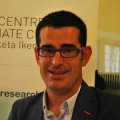
Ibon Galarraga Gallastegui
BC3, Basque Centre for Climate Change
BC3 Basque Centre for Climate Change Ph.D. in Economics (Environmental Economics) from the University of Bath (UK), M.A. Economics at the University of Essex (UK) and B.A. Economics (speciality of International Economics and Development) at the University of Basque Country. He has worked as an environmental consultant for many years for both public and private clients such as the World Bank, the Department for International Development of the British Government or the Basque Government. He was co-founder of a consultancy company. Ibon taught microeconomics and macroeconomics at the University of Bath and Economic Policy at the University of Deusto.
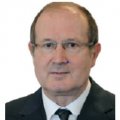
Fernando Lasheras García
Fernando Lasheras has a degree in Electrical Engineering from the School of Engineering of San Sebastián (now TECNUN). He is currently the Director of European Polices of Iberdrola. In the first half of his professional career, he worked in the operation of a power system (Iberduero) and a Transmission System Operator (REE). In the second part, his work has dealt with regulatory and policy issues in the energy field, first at national level (Spain), and later on at European level, as the first Director of the representative office of Iberdrola in Brussels.

Juan Ignacio López Moreno
CSIC
His research interests focus on the hydrological and climatic evolution of mountain areas. It includes: - Snow hydrology: Temporal analysis of hidroclimatic variables, spatial distribution and energy balance of snowpack, analyses of river regimes in mountain areas. - Climatic change: Quantification and assessment of the effect of climate change simulated by regional Climate Models (RCMs) on the hydrological response of mountain areas. Evaluation of the effect of climate change on winter tourism. - Water resources management: Assessment of the effect of the hydrological variability and change in headwaters on the management of large reservoirs, and the implications on water supply to the lowlands. - Pyrenean Glaciers: Monitoring the recent changes occurred in the extension and volume of Pyrenean Glaciers and their relation to climate evolution. Personal profile: http://sitios.csic.es/web/ipe-instituto-pirenaico-de-ecologia/lopez-moreno-j.i.

Iñigo Losada
IH Cantabria and IPCC
Iñigo Losada is the Research Director at IH Cantabria. He has also been Director of the Department of Water and Environmental Sciences and Techniques (2000-2003) and is Professor of Hydraulic Engineering at the Faculty of Civil Engineering of the University of Cantabria. He holds a Doctorate in Civil Engineering from the University of Cantabria and a PhD in Civil Engineering from the University of Delaware (USA) where he worked as a researcher at the Center for Applied Coastal Research from 1989 to 1992. Iñigo has been lead researcher in projects within the Spanish National Plan, the European Union and other international research agencies. He has also led over 50 transfer projects for the United Nations, the Inter-American Development Bank, the Council of Europe and several national and international companies and public administrations. He is lead researcher of the Unique Scientific and Technological Infrastructure “Cantabria Coastal and Ocean Basin”.
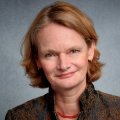
Katja Philippart
Dr. Philippart is Lead investigator and Deputy head of the Department of Coastal Systems at NIOZ, and is also Associate Professor at the University of Utrecht.The main aim of her research is to understand the trophic interactions between the main primary producers (phytoplankton and microphytobenthos) and primary consumers (bivalves) of shallow temperate coastal waters such as the Wadden Sea. Her research group uses various techniques, including automated monitoring networks, field surveys, remote sensing and laboratory experiments. Collection and advanced statistics of field data and testing of mechanistic views on structuring factors of primary production and consumption in shallow coastal waters is performed within several interdisciplinary projects, performed together with national and international partners. While the Wadden Sea is her primary study area, her research has included studies within the North Sea, Venice Lagoon, Banc d’Arguin, Patagonian Shelf and Oman.
Tarifs inscription
| MATRICULA | jusqu'au 01-05-2018 | jusqu'au 31-05-2018 | jusqu'au 01-07-2018 |
|---|---|---|---|
| 0 EUR | - | - | |
| - | 95,00 EUR | 125,00 EUR | |
| - | 0 EUR | 0 EUR |
